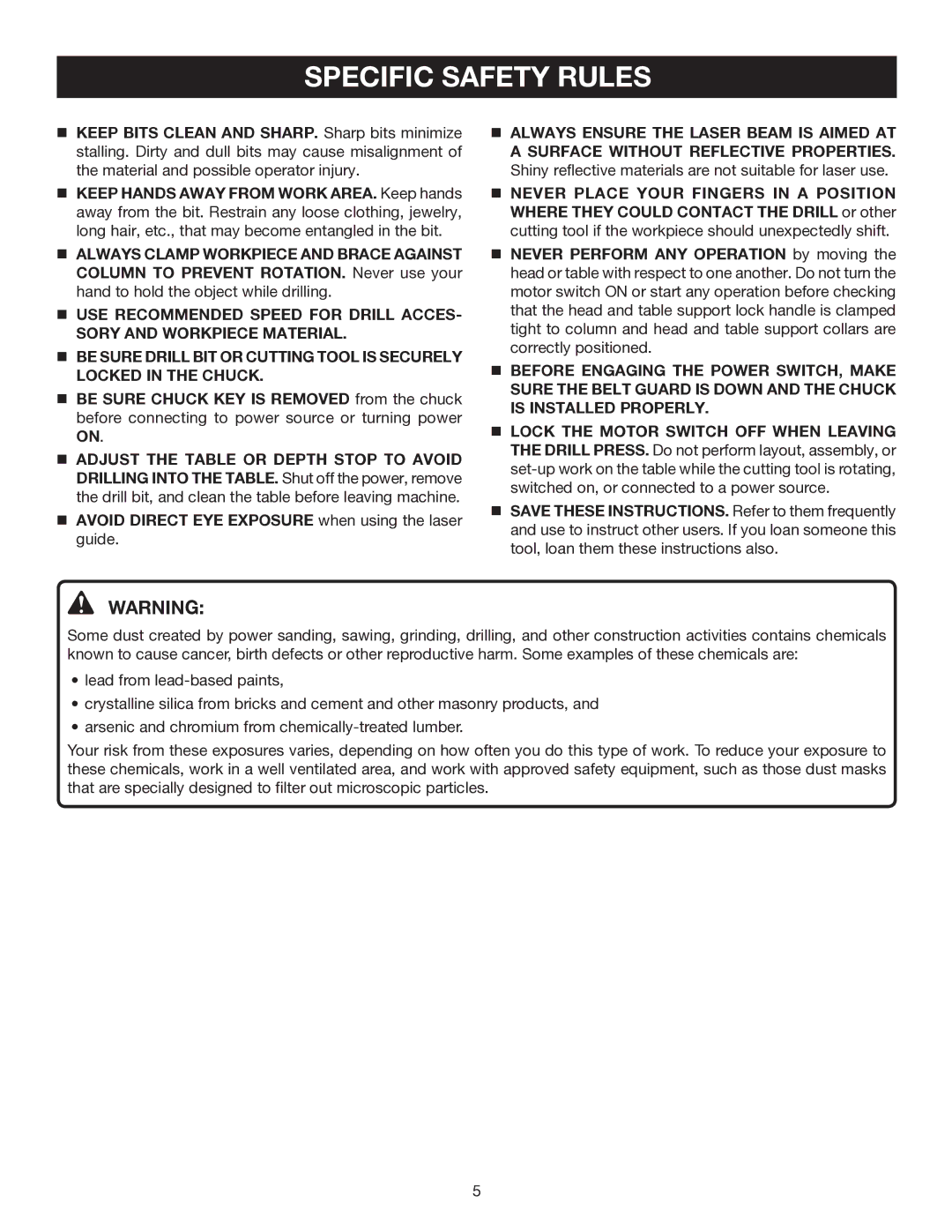
SPECIFIC SAFETY RULES
KEEP BITS CLEAN AND SHARP. Sharp bits minimize stalling. Dirty and dull bits may cause misalignment of the material and possible operator injury.
KEEP HANDS AWAY FROM WORK AREA. Keep hands away from the bit. Restrain any loose clothing, jewelry, long hair, etc., that may become entangled in the bit.
ALWAYS CLAMP WORKPIECE AND BRACE AGAINST COLUMN TO PREVENT ROTATION. Never use your hand to hold the object while drilling.
USE RECOMMENDED SPEED FOR DRILL ACCES- SORY AND WORKPIECE MATERIAL.
BE SURE DRILL BIT OR CUTTING TOOL IS SECURELY LOCKED IN THE CHUCK.
BE SURE CHUCK KEY IS REMOVED from the chuck before connecting to power source or turning power ON.
ADJUST THE TABLE OR DEPTH STOP TO AVOID DRILLING INTO THE TABLE. Shut off the power, remove the drill bit, and clean the table before leaving machine.
AVOID direct eye exposure when using the laser guide.
Always ensure the laser beam is aimed at a surface withou reflective properties. Shiny reflective materials are not suitable for laser use.
NEVER PLACE YOUR FINGERS IN A POSITION WHERE THEY COULD CONTACT THE DRILL or other cutting tool if the workpiece should unexpectedly shift.
NEVER PERFORM ANY OPERATION by moving the head or table with respect to one another. Do not turn the motor switch ON or start any operation before checking that the head and table support lock handle is clamped tight to column and head and table support collars are correctly positioned.
BEFORE ENGAGING THE POWER SWITCH, MAKE SURE THE BELT GUARD IS DOWN AND THE CHUCK IS INSTALLED PROPERLY.
LOCK THE MOTOR SWITCH OFF WHEN LEAVING THE DRILL PRESS. Do not perform layout, assembly, or
SAVE THESE INSTRUCTIONS. Refer to them frequently and use to instruct other users. If you loan someone this tool, loan them these instructions also.
WARNING:
Some dust created by power sanding, sawing, grinding, drilling, and other construction activities contains chemicals known to cause cancer, birth defects or other reproductive harm. Some examples of these chemicals are:
•lead from
•crystalline silica from bricks and cement and other masonry products, and
•arsenic and chromium from
Your risk from these exposures varies, depending on how often you do this type of work. To reduce your exposure to these chemicals, work in a well ventilated area, and work with approved safety equipment, such as those dust masks that are specially designed to filter out microscopic particles.
